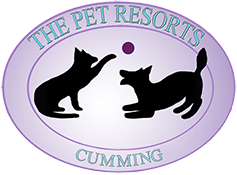Coprophagy and coprophagia are interchangeable technical terms used to describe the consumption of feces (eating poop). Yes, I know that this is a rather unsavory topic, but if ever you’ve cared for a dog with this habit, you know that understanding it and figuring out how to deal with it is imperative.
Understanding the behavior
Why would dogs do such a thing? The most innocuous version of “normal coprophagy” occurs after a dog has a litter of puppies. As a normal part of caring for and cleaning her offspring, the female ingests the feces that they produce.
It is known that dogs acquired from pet stores are more likely to exhibit coprophagy. The fact that the vast majority of these animals are raised in puppy mills likely provides the explanation for this.
Starvation caused by a lack of food and malnutrition resulting from an underlying disease process can also cause coprophagia.
Diseases such as diabetes mellitus and Cushing’s disease cause affected dogs to experience massive hunger, and coprophagy may be one of the earliest symptoms.
If you and your dog live with a cat, you likely know that eating “Kitty Roca” from the litter box is a favorite canine pastime. The high fat content in cat food, therefore cat feces, renders it highly palatable to most dogs.
In addition to the causes mentioned above, coprophagy in dogs can be associated with the following:
- Attention-seeking behavior
- Boredom/lack of stimulation or enrichment in the environment
- Learned behavior from other dogs in the household
- Stress/anxiety
Is it really necessary to prevent coprophagia?
Beyond the “disgust factor” (who would want kisses from a dog with this habit), coprophagia can result in medical issues. Ingestion of another animal’s feces can cause intestinal parasites, gastrointestinal upset, transmission of infectious diseases, and exposure to medications that are eliminated in the feces.
Treatment Measures
The first step in putting an end to coprophagy is a veterinary visit. In addition to a thorough physical exam, blood testing and a stool sample examination to screen for intestinal parasites will be part of the evaluation.
For the dog who receives a clean bill of health, the veterinarian will likely discuss the following prevention:
1. Behavior modification
Response substitution involves teaching the dog an alternative behavior such as sitting down or making eye contact when he discovers feces. The alternative behavior results in a high-value reward such as a yummy treat or a game of “tug”.
A dog who is bored is more likely to exhibit coprophagia. Enrichment of the environment and involvement in more activities such as obedience training, play, and walks may provide benefit.
Truth be told, it is behavior modification of the human(s) involved in the dog’s life that usually reaps the greatest reward. Increasing interaction time with the dog and eliminating opportunities for coprophagia to occur (keeping your dog on leash when walking, avoiding the dog park, being vigilant about picking up feces in the yard) is often associated with a positive outcome.
Success with any of these options is likely to be enhanced by working with a veterinarian or trainer who specializes in canine behavior.
2. Taste aversion options
Specific products mixed in with the dog’s food are used to render a terrible taste to the feces. In order to be effective the product must be added to the food that every dog in the household eats. Over many years, I’ve found limited success with this approach. There are a number of taste aversion products on the market. Ask your veterinarian for his or her recommendations.
Have you had to manage this problem in one of your own dogs? If so, what did you try and what worked the best?
Originally posted at http://www.speakingforspot.com/blog/?p=5020
